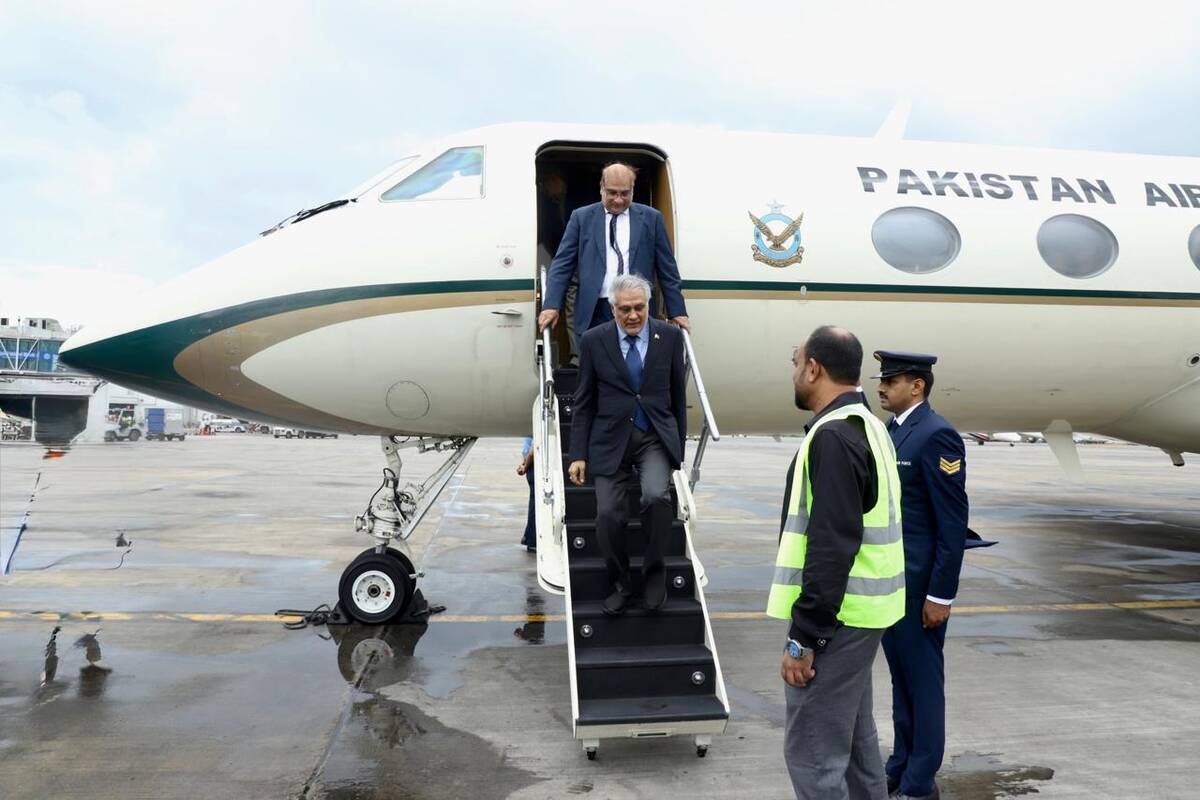ISLAMABAD: Pakistan’s Deputy Prime Minister and Foreign Minister Ishaq Dar arrived in Bangladesh on Saturday for the most senior visit by a Pakistani official to the country in years, in a sign of warming ties since the ouster of longtime leader Sheikh Hasina.
Dar’s visit follows months of increased contact between the two South Asian nations. Pakistan’s commerce minister Jam Kamal has been in Dhaka this week discussing trade and agricultural collaboration, while Pakistan’s foreign secretary Amna Baloch held the first bilateral consultations in 15 years in April.
Baloch’s visit covered political, economic, trade, agricultural, education and defense ties, as well as regional integration and a revival of the South Asian Association for Regional Cooperation (SAARC).
“Deputy Prime Minister and Foreign Minister of Pakistan, Senator Muhammad Ishaq Dar, arrived in Dhaka today on a landmark official visit from 23–24 August 2025, at the invitation of the Government of the People’s Republic of Bangladesh,” the foreign office said in a statement.

Pakistan’s Deputy Prime Minister and Foreign Minister Ishaq Dar arrives in Dhaka on August 23, 2025, on a two-day official visit to Bangladesh. (Handout/MoFA)
He is scheduled to meet Chief Adviser Muhammad Yunus and senior officials including Adviser for Foreign Affairs Md. Touhid Hossain and Adviser for Commerce SK Bashir Uddin during his two-day stay in Dhaka.
Talks will mainly cover bilateral cooperation as well as regional and international issues.

Pakistan’s Deputy Prime Minister and Foreign Minister Ishaq Dar arrives in Dhaka on August 23, 2025, on a two-day official visit to Bangladesh. (Handout/MoFA)
A day before Dar’s visit, a top Bangladeshi army officer, Lt. Gen. Md. Faizur Rahman, met Pakistan’s Chairman Joint Chiefs of Staff Committee Gen. Sahir Shamshad Mirza to discuss enhanced defense and security cooperation.
According to the military’s media wing, their talks also focused on the regional security environment, with the Bangladeshi official praising the professionalism of Pakistan’s armed forces and their sacrifices against militant violence.
Bangladesh’s ties with Pakistan have begun to ease since Hasina, often seen as close to India, was toppled in a popular uprising last year and fled to New Delhi.
The shift created space for Bangladesh and Pakistan – once one country until the bloody 1971 war of independence – to reset relations.
Dar also met leaders of Bangladesh’s newly formed National Citizen Party (NCP), a student-led movement that spearheaded the protests which unseated Hasina.
The party, formally launched earlier this year, has called for a “second republic” with a new constitution aimed at strengthening democracy and social justice.
Its emergence has reshaped Bangladesh’s political landscape, challenging decades of dominance by traditional parties and giving voice to younger generations.
Pakistan’s deputy prime minister emphasized the need for greater interaction between the youth of the two countries.
The delegation members apprised him of different facets of the nationwide political mobilization in Bangladesh last year.
“The two sides also discussed possibilities to promote cultural exchanges between Pakistan and Bangladesh in the days ahead,” said the foreign office.
















